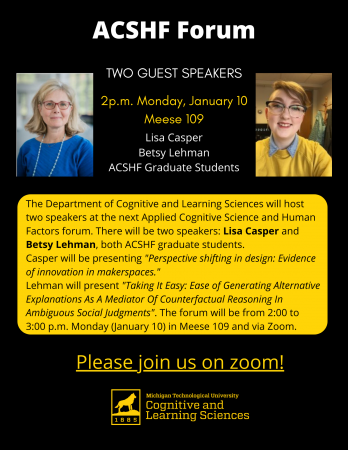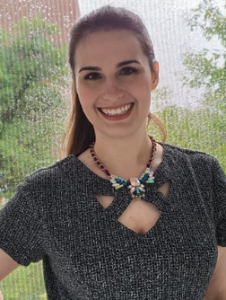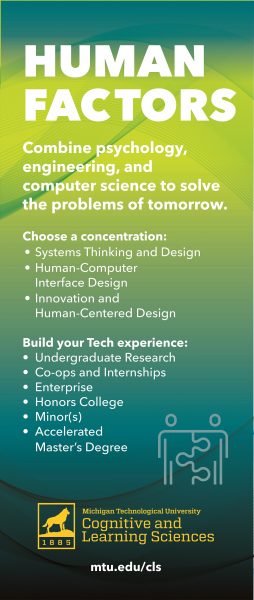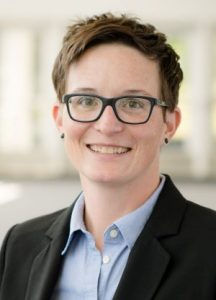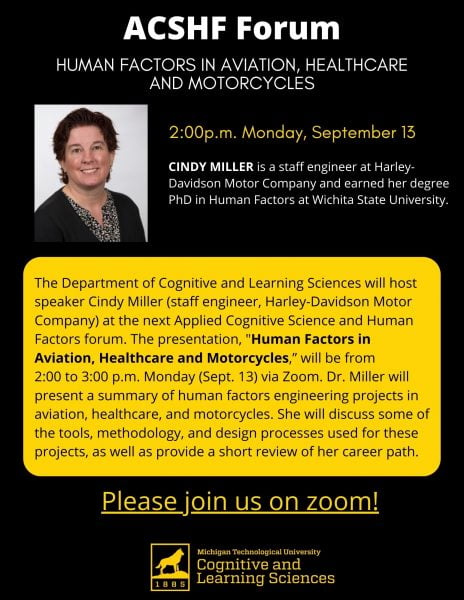The first Spring 2022 Applied Cognitive Science and Human Factors (ACSHF) Forum will be held from 2-3 p.m. on Monday (January 10) in the Harold Meese Center (Meese), Room 109, and virtually via Zoom. There will be two speakers: Lisa Casper and Betsy Lehman, both ACSHF graduate students.
Lisa Casper’s Abstract:
Perspective shifting in design: Evidence of innovation in makerspaces
One of the critical 21st-century skills students need is to be able to think differently. Makerspaces and design thinking have become part of university innovation education strategies across the world to help students develop these skills. But how do we support innovation in makerspaces? At Michigan Tech, we use design thinking in conjunction with the makerspace. Most research and evidence of innovation in makerspaces is anecdotal. My research is taking a cognitive engineering approach to supporting and developing innovation in makerspaces. In this talk, I will review research on makerspaces and innovation theories with a backdrop of the design thinking process. Using cognitive task analysis, we interviewed expert makers from Europe and the United and conducted a thematic analysis of the data. Themes from these interviews suggest focus areas for innovations in makerspaces that will support future experiments.
Betsy Lehman’s Abstract:
Taking It Easy: Ease of Generating Alternative Explanations As A Mediator Of Counterfactual Reasoning In Ambiguous Social Judgments
It is important to know how people make sense of situations and question their theories. Questioning one’s perspective may be critical in many situations, such as taking action against climate change, improving diversity and equity at work, or even promoting vaccine adoption. According to sensemaking theory (Klein et al., 2007), people must first question their theory of a situation before they can shift their perspective. However, research on how people question their frame is limited. Using counterfactual theory (Roese & Olson, 1995), we examined factors and strategies affecting this part of the sensemaking process in two studies. In Study 1, 80 participants generated explanations and predicted outcomes in five ambiguous social situations. Data were analyzed using path analysis to compare fit between a base model (i.e., ease, malleable factors, and missing information all predicting outcome likelihood judgments) and a model based on counterfactual generation theory (Roese & Olson, 1995). Results indicated that the latter model fit was better, indicating that ease of generation may be a critical mediator in the sensemaking process. Based on this result, Study 2 was designed to experimentally test this effect by manipulating ease of generation and a focusing strategy. This work contributes to research focused on understanding of the mechanisms of perspective shifts to support applications for system design and training, such as programs to reduce implicit bias.
